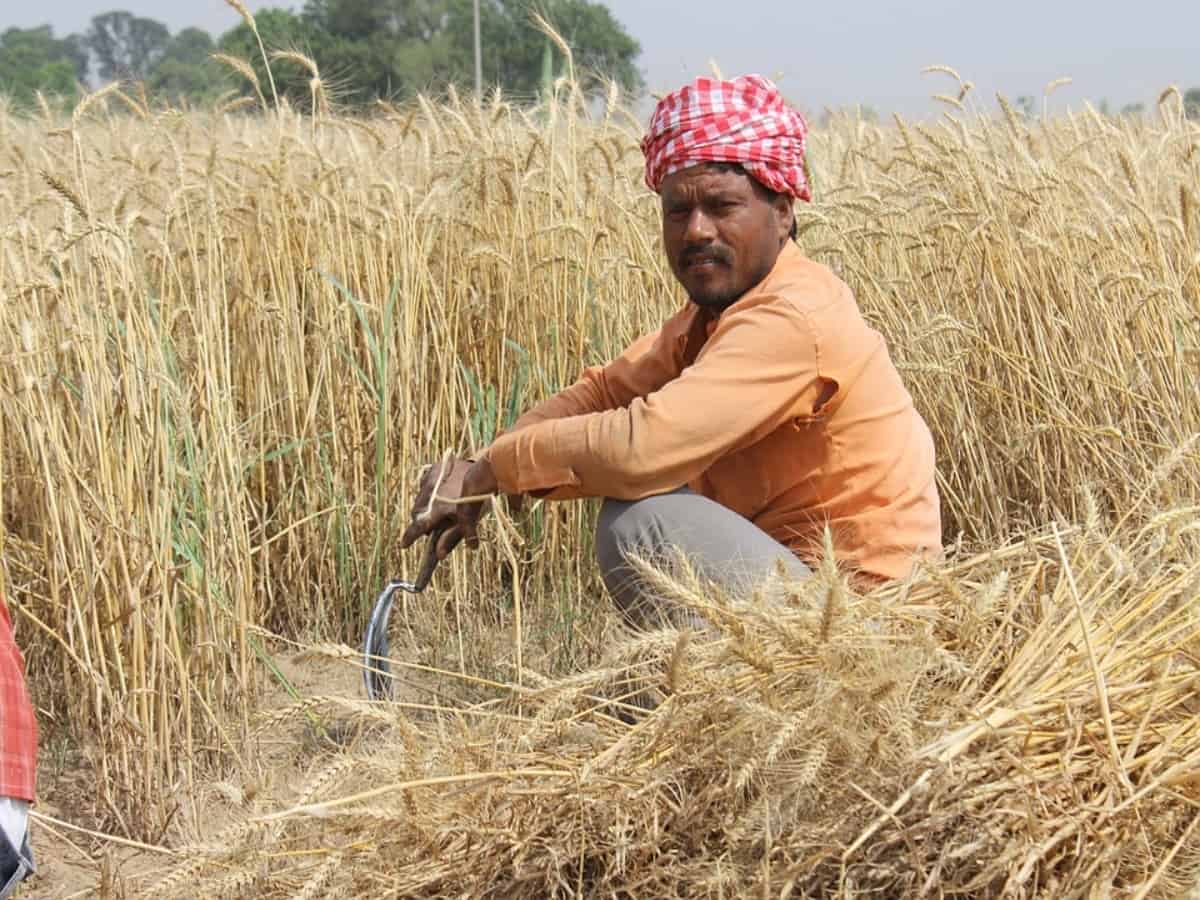
Hyderabad: The recent killing of a forest officer in Telangana allegedly by Guthi Koya tribals while he was trying to protect forest lands has brought the vexatious issue of ‘podu’ lands (shifting cultivation) into sharp focus as various knotty issues, including a large number of applications seeking rights over ‘podu’ lands, await resolution.
The Forest Range Officer (FRO) Srinivas Rao died after being attacked on November 22 allegedly by a group of tribals involved in ‘Podu’ cultivation inside a forest area in Bhadradri Kothagudem district.
He had gone there along with another official to stop damage being caused to a forest plantation.
According to a government official, over seven lakh acres of land is under ‘podu’ cultivation in the state at present.
Chief Minister K Chandrasekhar Rao had expressed anguish over the death of the FRO and vowed to take tough action against the culprits.
The killing of the FRO caused concern among forest personnel and the Telangana Forest Officers Association urged the government to provide arms to those working on the ground to effectively work for conservation of forests.
At the centre of the conflict is the ‘podu’ lands (shifting cultivation) where traditionally local communities clear forests (often burnt down) and cultivate crops.
After harvest, the ‘podu’ cultivators abandon the land and sometimes return for another cropping season.
This deforestation has been a cause for concern.
As forest personnel strive to prevent the loss of forests, it results in a conflict between them and the ‘podu’ cultivators.
The FRO’s killing in Bhadradri-Kothagudem district is not the first such attack on forest personnel in the state.
There have been several attacks on forest personnel in the state since the last many years.
The Scheduled Tribes And Other Traditional Forest Dwellers (Recognition Of Forest Rights) Act grants rights over lands and all tribals holding forest land up to December, 2005 are eligible.
While the state government has initiated a survey to settle claims over forest lands towards addressing the issue, there have been concerns over the loss of invaluable forest cover as encroachments on forest lands have already been regularised in the past.
Recalling that state government had diverted more than two lakh acres of forest land to ‘podu’ cultivators before the Forest Conservation Act came in 1980 with the hope of settling the issue permanently, a retired official alleged that it had encouraged others to further encroach forest land with the hope of getting it regularized some time in future out of political considerations.
Their hope came true in 2009 when the then Y S Rajasekhara Reddy government in undivided Andhra Pradesh gave rights over forest lands on a large scale before the elections, he claimed.
A loophole in the RoFR Act is that there is no cut off date to receive applications for regularization and the state government can conduct gram sabhas any number of times to determine the rights of claimants in the absence of a sunset clause, he said.
Another loophole in the Act is with regard to deciding and demarcating encroachments before and after the cut-off date of December 2005. Under RoFR Act 2005, all beneficiaries have to be identified in Gram Sabha and eligibility will be decided by ‘village elders’, the retired official said.
This method of village elders finalizing is fraught with infirmities, he pointed out.
While condemning the killing of FRO Srinivas Rao on November 22, the Association of Retired Forest Officers, Telangana and Andhra Pradesh had said forest encroachments and physical attacks on frontline forest officers will continue unless leaders from all political parties clearly and jointly state that rights on forest lands will be considered strictly as per provisions of Acts and pledge to support the field staff.
Another important aspect of the ‘podu’ lands issue is the presence of ‘Guthi Koya’ tribals from Chattisgarh who occupied forest lands in Telangana.
In the wake of FRO Srinivas Rao’s killing, the village panchayat of Bendalapadu village in Bhadradri-Kothagudem district where the incident occurred had passed a resolution demanding that Gutti Koyas should leave the Errabodu forest area.
The forest department had issued notices to Guthi Koyas at Errabodu, where the FRO lost his life, that they should vacate.
Such notices are generally issued to encroachers and they can produce any documents in support of their claim, a forest official told PTI.
Former Telangana Principal Chief Conservator of Forests (PCCF) P K Jha suggested that the RoFR cases should be resolved in two stages.
In the first stage, all forest land encroached prior to December 2005 shall be demarcated both on map and on ground with proper marking by taking the help of GIS timeline map in each forest fringe village.
In the second phase, Gram Sabhas shall be conducted duly involving local public representatives to identify the beneficiaries within the boundary of identified encroached forest land prior to December, 2005.
Forest department can be present in Gram sabha but selection of beneficiaries within identified boundaries shall be fully left to the Gram Sabha, he said.
An official release had quoted ST Welfare Minister Satyavathi Rathod as having said at a recent meeting that the government is making sincere efforts to address the ‘podu’ lands issue permanently and for the conservation of forests.



